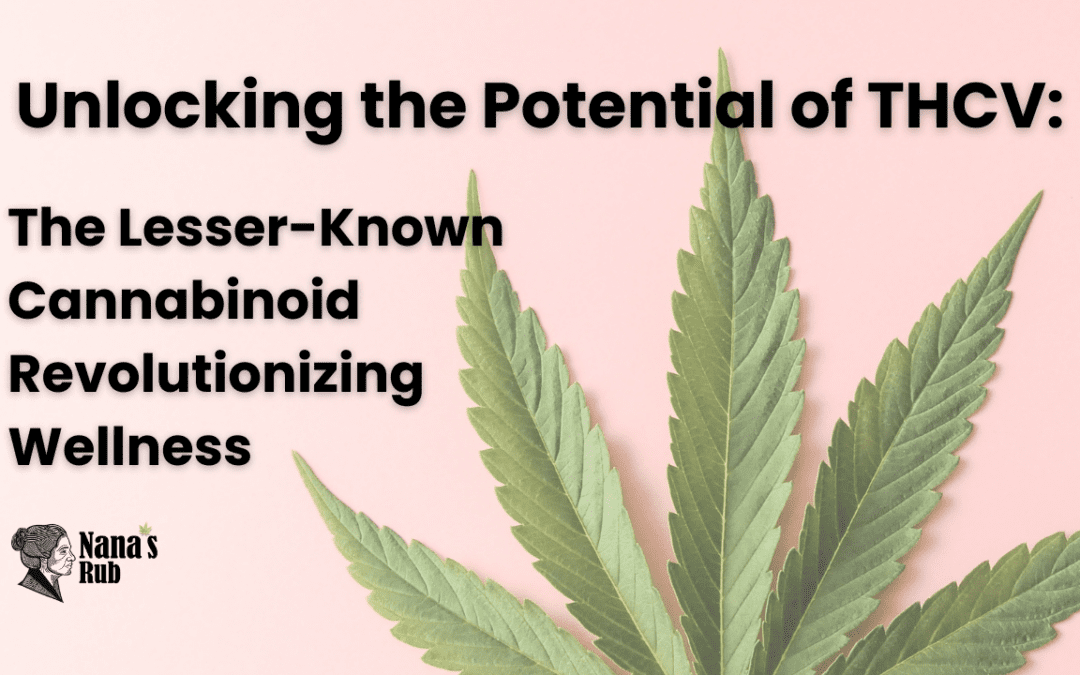THCV: The Emerging Cannabinoid Redefining Cannabis Wellness
While cannabis has long been celebrated for its therapeutic properties, a newer cannabinoid is beginning to gain attention — THCV (tetrahydrocannabivarin). Often overshadowed by the more well-known THC, THCV offers distinct benefits that set it apart. Whether you’re looking to enhance focus, manage your appetite, or explore a natural energy booster, THCV could be the wellness tool you didn’t know you needed. Let’s take a closer look at what makes THCV so special and why it’s on the rise.
THCV vs. THC: How Do They Compare?
Though both THC and THCV are cannabinoids, their effects differ significantly:
Energy Levels: Unlike THC, which can often induce lethargy, THCV tends to provide an energetic, stimulating effect that’s perfect for daytime use or physical activity.
Appetite: While THC is well-known for triggering hunger (often referred to as the “munchies”), THCV has the opposite effect, suppressing appetite, which can assist in weight management.
Medical Applications: THC is widely used for pain relief, nausea, and as a sleep aid. On the other hand, THCV shows promise for regulating metabolism, supporting neuroprotection, and helping control cravings.
Psychoactive Effects: THC is famous for its euphoric “high,” while THCV, at lower doses, provides a more clear-headed experience with minimal or no psychoactive effects. At higher doses, however, THCV can produce a mild, shorter-lasting high.
What is THCV?
THCV is a naturally occurring cannabinoid found in both cannabis and hemp plants. Though typically present in lower amounts compared to THC or CBD, THCV originates from a precursor called CBGVA (cannabigerovarin acid), which converts into THCV as the plant grows. It’s commonly found in certain sativa strains, especially those native to African regions like Durban Poison, though selective breeding is making it more accessible across various strains.
Because THCV is harder to cultivate in large quantities, it’s considered a rare cannabinoid. However, the growing demand for unique cannabinoids is encouraging more producers to develop THCV-rich strains, making it an exciting new player in the cannabis market.
THCV’s Unique Effects and Benefits
So what makes THCV stand out from the rest of the cannabinoid family? Here are some of its remarkable benefits:
Blood Sugar Regulation: Preliminary research shows that THCV may help improve insulin sensitivity and regulate blood sugar levels, which could be beneficial for those managing type 2 diabetes.
Appetite Suppressant: Unlike THC, which can increase hunger, THCV has the ability to suppress appetite, making it a potential aid for weight management.
Neuroprotective Properties: THCV is currently being studied for its potential to protect neurons, particularly in the context of neurodegenerative diseases like Parkinson’s and Alzheimer’s.
Energy Boost: Known for its clear-headed, uplifting effects, THCV acts more like a stimulant, making it ideal for those seeking focus and productivity.
Mood Stabilization: Some users have reported that THCV helps manage anxiety and mood swings without the sedation typically associated with other cannabinoids.
How THCV Affects the Body
Like other cannabinoids, THCV interacts with the body’s endocannabinoid system. At lower doses, THCV binds to the CB1 receptors in the brain, providing a stimulating and clear-headed effect. Interestingly, at higher doses, it switches from being a CB1 receptor antagonist to a partial agonist, mimicking some of THC’s effects and offering a mild psychoactive experience.
The Growing Research on THCV
While research into THCV is still in its infancy, early studies show great potential. Current investigations are focusing on how THCV may support metabolic health, particularly in the context of obesity and type 2 diabetes. In clinical trials, THCV has demonstrated the ability to regulate blood sugar levels and improve insulin sensitivity, without causing the high associated with THC.
Another area of research centers on THCV’s neuroprotective capabilities. Ongoing studies are exploring its role in conditions like Alzheimer’s, multiple sclerosis, and Parkinson’s, with the aim of understanding how it might protect brain cells from degeneration and inflammation. Additionally, there’s interest in THCV’s effects on anxiety, PTSD, and mood stabilization.
As research continues, future studies are expected to explore THCV’s long-term safety and efficacy in treating obesity, addiction, and neurological disorders. THCV’s ability to suppress appetite and reduce cravings makes it an intriguing candidate for such studies.
Different THCV Products Available
With THCV’s growing popularity, a variety of products featuring this cannabinoid are hitting the market:
THCV Flower: For those who prefer smoking or vaping, certain cannabis strains have been selectively bred to contain higher concentrations of THCV.
THCV Edibles: Gummies and chocolates infused with THCV offer a discreet and tasty way to experience its effects.
THCV Oils and Tinctures: These products allow for precise dosing and can be taken sublingually or mixed into food and drinks.
THCV Vape Cartridges: Ideal for rapid absorption, THCV cartridges provide a quick burst of energy and focus for on-the-go use.
THCV’s Journey Through the Body
When consumed, THCV travels through the body much like other cannabinoids. At lower doses, it engages with CB1 receptors, offering stimulating and uplifting effects. At higher doses, it can produce a mild psychoactive sensation, though it remains less intense and shorter-lived than THC’s high. This dual action makes it a unique and versatile cannabinoid in the world of cannabis.
There is a promising future for THCV in cannabis as a natural alternative.
As more research unfolds, THCV is poised to become a major player in the cannabis wellness industry.
Cannabis strains that are high in THCV (tetrahydrocannabivarin) tend to be rarer but are becoming more popular due to THCV’s unique effects, such as appetite suppression, energy boost, and blood sugar regulation. Here are some strains known to have higher levels of THCV:
Durban Poison – One of the most well-known strains rich in THCV, originating from South Africa, this pure sativa is famous for its energizing and clear-headed effects.
Doug’s Varin – Specifically bred for its high THCV content, this strain is sought after for its ability to suppress appetite and provide an uplifting, focused high.
Pineapple Purps – A rare sativa-dominant strain that has been found to have elevated levels of THCV, it offers an energetic high and mood enhancement.
Jack the Ripper – A sativa-dominant hybrid known for its cerebral high and high THCV content, Jack the Ripper is ideal for those looking for a clear-headed experience.
Power Plant – Another sativa strain with origins in South Africa, Power Plant has a reputation for delivering an energizing high and tends to have notable amounts of THCV.
Red Congolese – A sativa with African roots, it’s known for its uplifting effects and is another strain reported to have higher levels of THCV.
Skunk #1 – A classic hybrid strain that, in some phenotypes, can contain significant levels of THCV alongside other cannabinoids.
These strains offer a range of THCV content and can deliver unique benefits such as appetite suppression, energy, and mood regulation, distinguishing them from THC-dominant strains.
Learn how to make your own butters and oils at home:
Infusing with Cannabis for Natural Pain Relief
by: David Yrigoyen MMJ_David





Recent Comments